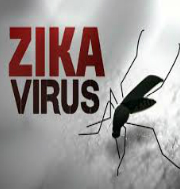Zika Virus may damage brain cells in adults, not just newborns: Study
US based new research has found out that that Zika virus may damage brain cells not just in newborns but also in adults. However, this research is still in the early stages.
In this study, researchers have focused on neural progenitor cells. These cells are the stem cells of the brain. They grow and divide in fetuses to create neurons, which are what carry information throughout our brains.
Key Facts
- The study suggests that adults may not be immune to the effects of virus, as they also maintain small number of progenitor cells in the areas of the brain.
- Adults use these cells for learning and memory. They also help to replace and replenish damaged neurons.
- It study suggests that the Zika virus may affect the memory and learning centres in adult brains as the progenitor cells can be susceptible to Zika infection.
About Zika Virus
- Zika virus is vector borne disease transmitted primarily by Aedes aegypti mosquitoes.
- The virus is capable of causing serious birth defects i.e. neurological disorders and foetal deformation known as Microcephaly in which infants are born with abnormally smaller heads.
- Besides a possible link between the virus and Guillain-Barré syndrome (GBS: a condition in which the body’s immune system attacks part of the nervous system) is also suspected.
Month: Current Affairs - August, 2016


